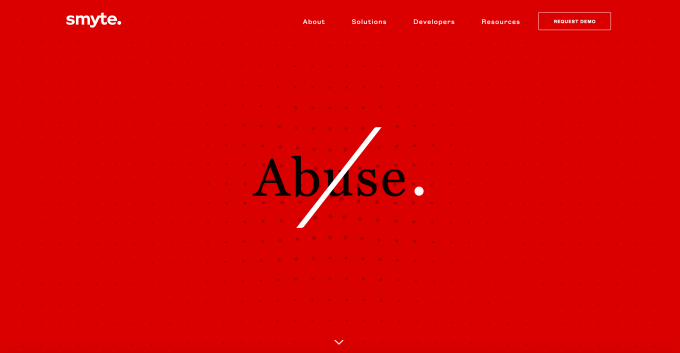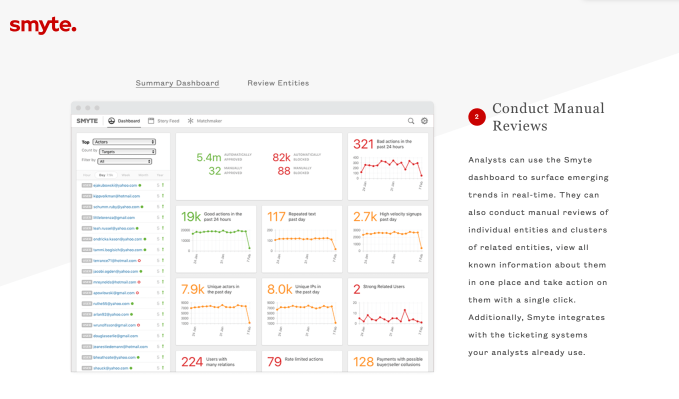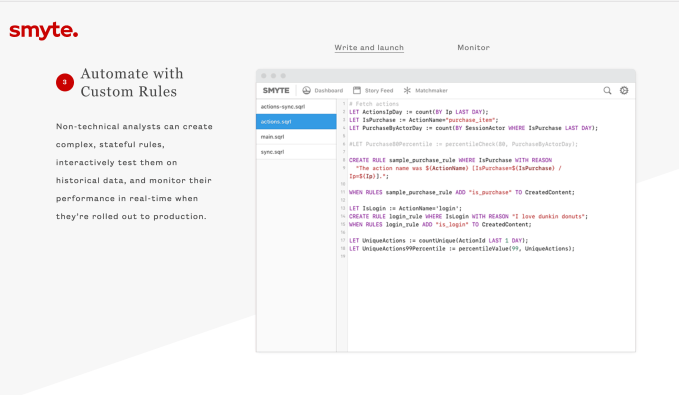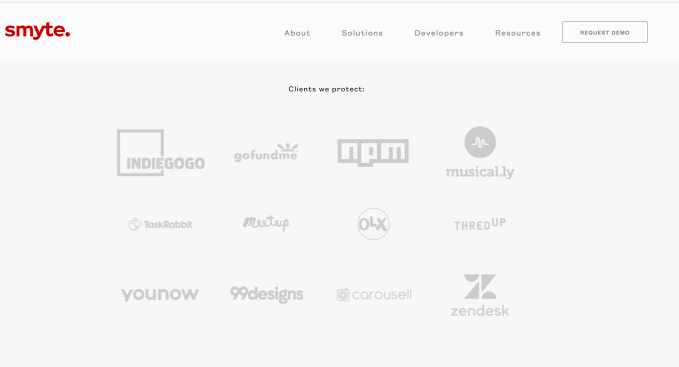|
https://ift.tt/2K9FZWU
Twitter acquires anti-abuse technology provider Smyte https://ift.tt/2I8ROHZ Twitter this morning announced it has agreed to buy San Francisco-based technology company Smyte, which describes itself as “trust and safety as a service.” Founded in 2014 by former Google and Instagram engineers, Smyte offers tools to stop online abuse, harassment, and spam, and protect user accounts. Terms of the deal were not disclosed, but this is Twitter’s first acquisition since buying consumer mobile startup Yes, Inc. back in December 2016 Online harassment has been of particular concern to Twitter in recent months, as the level of online discourse across the web has become increasingly hate-filled and abusive. The company has attempted to combat this problem with new policies focused on the reduction of hate speech, violent threats, and harassment on its platform, but it’s fair to say that problem is nowhere near solved. As anyone who uses Twitter will tell you, the site continues to be filled with trolls, abusers, bots, and scams – and especially crypto scams, as of late. This is where Smyte’s technology – and its team – could help.
The company was founded by engineers with backgrounds in spam, fraud and security. Smyte CEO Pete Hunt previously led Instagram’s web team, built Instagram’s business analytics products, and helped to open source Facebook’s React.js; co-founder Julian Tempelsman worked on Gmail’s spam and abuse team, and before that Google Wallet’s anti-fraud team and the Google Drive anti-abuse team; and co-founder Josh Yudaken was a member of Instagram’s core infrastructure team.
The startup launched out of Y Combinator in 2015, with a focus on preventing online fraud. Today, its solutions are capable of stopping all sorts of unwanted online behavior, including phishing, spam, fake accounts, cyberbullying, hate speech and trolling, the company’s website claims. Smyte offer customers access to its technology via a REST API, or it can pull data directly from its customer’s app or data warehouse to analyze. Smyte would then import the existing rules, and use machine learning to create new rules and other machine learning models suited to the business’s specific needs. The customers data scientists could also use Smyte to deploy (but not train) their own custom machine learning models, too.
Smyte’s system includes a dashboard where analysts can surface emerging trends in real-time, as well as conduct manual reviews of individual entities or clusters of related entities and take bulk actions. Non-technical analysts could use Smyte to create custom rules tested on historical data, then roll them out to production and watch how they perform in real-time.
For Twitter, the use case for Smyte is obvious – its technology will be integrated with Twitter itself and its backend systems for monitoring and managing reports of abuse, while also taking aim at bots, scammers and a number of other threats today’s social networks typically face. Of course, combatting abuse and bullying will remain Twitter’s most pressing area of concern – especially as it’s the place where President Trump tweets, and the daily news is reported and discussed (and angrily fought about). But Twitter could use some help with its troll and bot problem, too. The company, along with Facebook, was home to Russian propaganda during the 2016 U.S presidential election. In January, Twitter notified at least 1.4 million users they saw content created by Russian trolls; it also was found to have hosted roughly 50,000 Russian bots tweeting election-related content in November 2016. Presumably, Smyte’s technology could help weed out some of these bad actors, if it works as well as described. Twitter didn’t provide much detail as to how, specifically, it plans to put Smyte’s technology to use. Instead, the company largely touted the team’s expertise and the “proactive” nature of Smyte’s anti-abuse systems, in today’s announcement:
According to Smyte’s website, the company has a number of high-profile clients, including Indiegogo, GoFundMe, npm, Musical.ly, TaskRabbit, Meetup, OLX, ThredUp, YouNow, 99 Designs, Carousell, and Zendesk. Twitter tells us that Smyte will wind down its operations with those customers – it didn’t acquire Smyte for its revenue-generation potential, but rather for its talent and IP.
LinkedIn reports there are only a couple dozen employees at Smyte today, including the founders. But Smtye’s own website lists just nineteen. Twitter wouldn’t confirm Smtye’s current headcount but says it’s working to find positions for all. Terms of the deal were not disclosed, but Smyte had raised $6.3 million in funding from Y Combinator, Baseline Ventures, Founder Collective, Upside Partnership, Avalon Ventures, and Harrison Metal, according to Crunchbase. Social Media via Twitter – TechCrunch https://techcrunch.com June 21, 2018 at 08:51AM
0 Comments
Leave a Reply. |
�
Amazing WeightLossCategories
All
Archives
November 2020
|







 RSS Feed
RSS Feed
